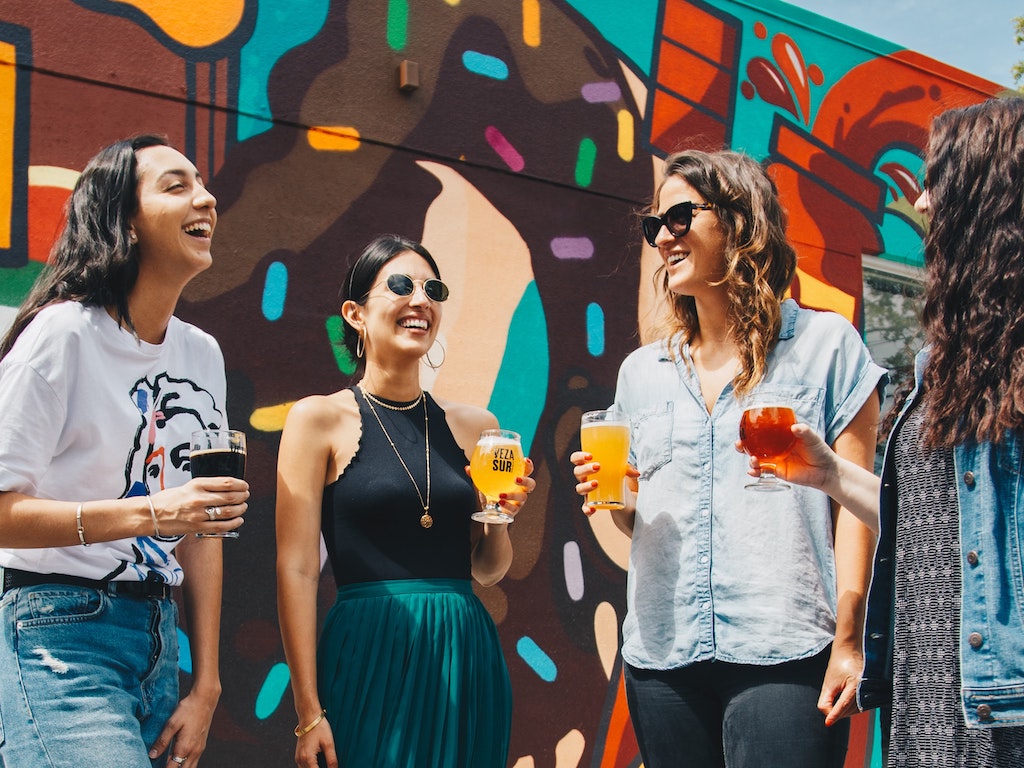3 Mins Read
The past few years has seen a sharp rise in the number of people opting for non-alcoholic drinks. From the sober-curious to non-drinkers alike, wellness-minded millennials are giving up wine for kombucha and loving it. Far from being the “lame” drink section on the menu, alcohol-free is now the cool choice for many. Rather than exempting themselves from the socially accepted ritual of drinking, these teetotallers are being presented with a range of new 0% drink options on the market. You can now find alcohol-free gin, champagne, wine and beer on many a (hipster) bar and the trend is going mainstream. With the global Sober October campaign currently on, we decided to delve into this trend further.
Drinking seems to be on the decline, especially amongst younger consumers. According to drinks markets analytics firm IWSR, alcohol sales volumes have taken a nosedive since 2016. A 2018 study revealed that almost one third of young people don’t drink at all. This seems to have been fuelled by the health and wellbeing trend amongst consumers – particularly Gen-Zs and millennials – who are more conscious about their food choices and the impact it has on their bodies. Recent research has rejected the formerly widespread idea that “moderate” levels of drinking brings about heart-healthy benefits. For instance, a Lancet study has argued that a “safe” amount of alcohol does not exist – no matter how small.
But despite alcohol consumption taking a hit, the social ritual that is drinking with a group of friends isn’t going anywhere. Given this, the beverage industry has taken on the challenge to recreate the taste and experience of drinking for teetotallers. Rather than being presented as a nerdy alternative to “real” drinks, new non-alcoholic beverage creations are now seen as hip and cool.
Listen Bar, for instance, has become one of the most hyped-up new pop-ups to make a scene in the United States. Even traditional alcohol manufacturers are taking note of the trend with the likes of Heineken spending money to advertise its new non-alcoholic beer and MillerCoors dishing out the dollars to acquire a Californian kombucha company.
This isn’t just a Western phenomenon, however. Given that the health and wellbeing industry is experiencing the most rapid boom in Asian markets, it is unsurprising that alcohol-free drinks – from fortified wines to non-alcoholic kombucha “gins” – is the up-and-coming trend in this region too. Cashing in on the trend in Asia is Ben Branson, founder of distilled alcohol-free spirit Seedlip, which tastes almost exactly like gin. In Hong Kong alone, the drink is available on menus everywhere across the ity from mainstream outlets like Pizza Express to more high end spots such as Potato Head, Aberdeen Street Social, Buenos Aires Polo Club, just to name a few.
Retailers are increasingly offering options too. Edgar in Wan Chai stocks French alcohol-free sparkling wine brand Le Petit Beret, which owner Raphael De Ry says sells extremely well, and over at The Bottle Shop, drinkers can find Ariel Dealcoholized wines and Suntory All-Free beer.
Hong Kong mixologist and Generation T. honouree Victoria Chow, in an interview with Tatler Asia said: “Low ABV cocktails and spirits, as disgruntled as I am to admit this, will likely continue their rise in popularity as consumers become more health-conscious.”
Other local mixologists have seen the uptick in alcohol-free drinking and responded to it by offering more alcohol-free creations. Bartender Antonio Lai, who owns Quinary bar, a Soho favourite, told the SCMP that “after a few years, we see our spirit-free drinks are more popular” and have proved to the public that “you can have a good time and not have to drink cranberry and orange juice.”
Lead image courtesy of Unsplash.




